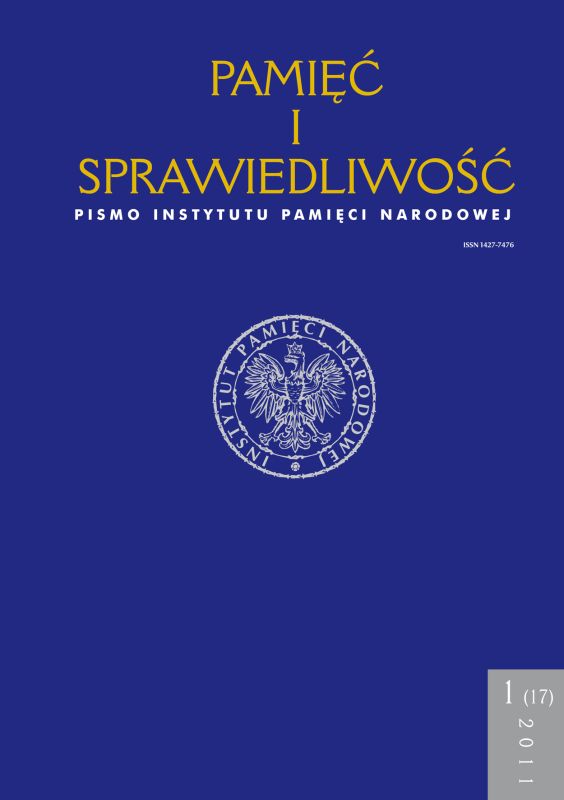Młodzież polska w propagandzie prasy gadzinowej dystryktu radomskiego lat 1939–1945
Pamięć i Sprawiedliwość, Tom 17 Nr 1 (2011), strony: 31-46
Data publikacji: 2011-06-30
Abstrakt
The Radom District was one out of four (after incorporation of Galicia – out of five) basic administrative units of the General Government [Generalne Gubernatorstwo, GG].
Between 1939 and 1945 in the biggest cities of the Radom District such as: Częstochowa, Kielce and Radom were available daily newspapers for Polish citizens published by the invaders. Their authors were deeply interested in such topics as: the youth’s living conditions, work and live perspectives. Needless to say, widely promoted young Poles’ situation in those days was completely subordinated to the Germans’ created propaganda throughout the whole General Government. According to it, German occupation unburdened Polish society of living in “old” Poland where hitherto maladministration of Polish authorities resulted in large-scale unemployment and in inability to provide wealthy life conditions for young people. Equally important was a Jews’ elimination from economy as those who – according to the Germans – were responsible for blocking the development of
“honest” craft, services and trade. Young people from rural areas were encouraged to work in the Third Reich as a country of a common welfare. The youth living in towns and cities was only to be career-oriented (in industry, craft and trade) in order to support country’s and nation’s potential. While in official newspapers
Germans used to create a vision of personal happiness of every single young Pole who would only be willing to work and learn their profession, they deliberately ignored the fact that the Pole’s entire adult life will be subordinated to the political and economic plans of the Reich. What is more, a newspaper journalism completely avoided all subjects concerning the youth’s situation especially referring to the growth of poverty, liquidation of the Polish cultural life, executions, deportations to concentrations camps, etc. Factors mentioned above, as well as many others,
had an influence on the picture of Polish young people’s life, promoted by the Germans in official newspapers, which was totally untrue.
Inne teksty tego samego autora
- Andrzej Gąsiorowski, Ryszard Kaczmarek, Sebastian Piątkowski, Klaus Ziemer, [Dyskusja] Okupacja niemiecka ziem polskich (1939–1945) w historiografii polskiej i niemieckiej , Pamięć i Sprawiedliwość: Tom 14 Nr 1 (2009)
- Sebastian Piątkowski, Codzienność początków okupacji niemieckiej w Generalnym Gubernatorstwie w świetle ogłoszeń drobnych „Gońca Krakowskiego” (październik 1939 – czerwiec 1940) , Pamięć i Sprawiedliwość: Tom 21 Nr 1 (2013)
 Język Polski
Język Polski
 English
English
 Deutsch
Deutsch
 Français (France)
Français (France)
 Italiano
Italiano
 Русский
Русский


 PDF
PDF
